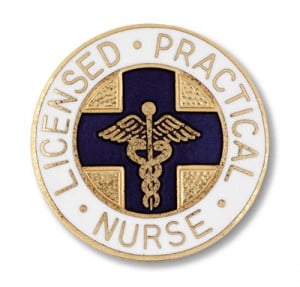8 Roles of the Licensed Practical Nurse
Originally, Licensed Practical Nurse (LPNs) were trained for bedside nursing in hospitals. Nowadays, the role of a practical nurse has expanded significantly. You can find LPNs working in various settings, such as hospitals, nursing homes, rehabilitation centers, physicians’ offices, schools, clinics (like dialysis or wound care centers), hospice/home care agencies, psychiatric centers, and more. Licensed Practical Nurse (LPNs) are known for their adaptability and flexibility. In many states, they are authorized to administer medications, care for ventilator-dependent patients, and even initiate intravenous (IV) fluids.
With this broader scope of practice comes a range of responsibilities, duties, and tasks for practical nurses. They play different roles, each having its distinct responsibilities.

Struggling to meet your deadline?
Get your assignment on 8 Roles of the Licensed Practical Nurse done by certified MDs and PhDs in the USA. ORDER NOW!
1. Clinician:
The clinician role involves tasks that are often considered as “nursing care.” LPNs are often referred to as the eyes and ears for Registered Nurses (RNs) and physicians. They spend more hands-on time caring for patients, conducting ongoing assessments, administering medications, and changing dressings. Many Licensed Practical Nurse (LPNs) also hold charge nurse positions and assist patients with personal care.
2. Manager:
Practical nurses are actively involved in ensuring that patient care plans are implemented effectively. Some LPNs participate in creating and evaluating these care plans. Educating patients and their families is an integral part of management responsibilities. Licensed Practical Nurse (LPNs) may also supervise nursing assistants, working in roles like charge nurses or team leaders.
3. Advocate:
Advocacy is about supporting and providing information to patients. LPNs often stand up for patients and their rights, especially when patients are unable to protect their rights themselves. Showing genuine care for patients and striving to improve their situation daily is crucial in this role.
4. Educator:
Patient education is highly valued in nursing. LPNs, often involved in implementing care plans created by RNs, play a vital role in patient education. Topics in care plans, from wound care to medication teaching, require effective communication and educational strategies. Understanding patients’ preferred learning styles, encouraging questions, and fostering a positive learning environment are key aspects of this role.
Practical nursing has evolved into a dynamic profession with diverse roles, and LPNs contribute significantly to the well-being of patients in various healthcare settings.
5. Counselor
In the role of a counselor, Licensed Practical Nurse (LPNs) can assist patients and their families in understanding and expressing their thoughts and feelings about healthcare and illnesses. Some patients may find it challenging to accept a disease or its treatment options, especially in settings like hospice or long-term care. LPNs play a crucial role in helping patients navigate these transitions and ensuring they comprehend the available choices.
6. Consultant
Consulting involves communication, and as practical nurses, consulting with RN supervisors is essential for patient care and assessments. In certain situations, Licensed Practical Nurse (LPNs) may directly communicate with physicians. Effective communication to the right individuals enhances the efficiency of care plans. When gathering and conveying information, it’s important to present a comprehensive view of the patient’s situation.
7. Researcher
LPNs function as researchers in a supportive capacity. If issues arise in a care plan or a patient requires evaluation, Licensed Practical Nurse (LPNs) are often the first to notice. Identifying a problem is only the first step; LPNs must then find a solution. Research conducted by nurses should adhere to evidence-based practices, meaning it follows established standards and seeks the best treatment options for the patient.
8. Collaborator
Practical nurses are integral members of a broader patient care team, which includes RNs, CNAs, physicians, therapists, dietitians, volunteers, and more. In this extensive team, each member has their own specific roles and responsibilities. Collaborating in healthcare involves sharing information and collectively addressing challenges as a team. The primary focus is always the patient, aiming to ensure the highest quality care for each individual. Working together, the team ensures that tasks are completed and problems are resolved within their respective areas of expertise.

Dahlkemper, Tamara. Anderson’s Nursing Leadership, Management, And Professional Practice For The LPN/LVN in Nursing School and Beyond. 5th ed. Philadelphia: F.A. Davis Company, 2013. 56-61. eBook.

Dont wait until the last minute.
Provide your requirements and let our native nursing writers deliver your assignments ASAP.

